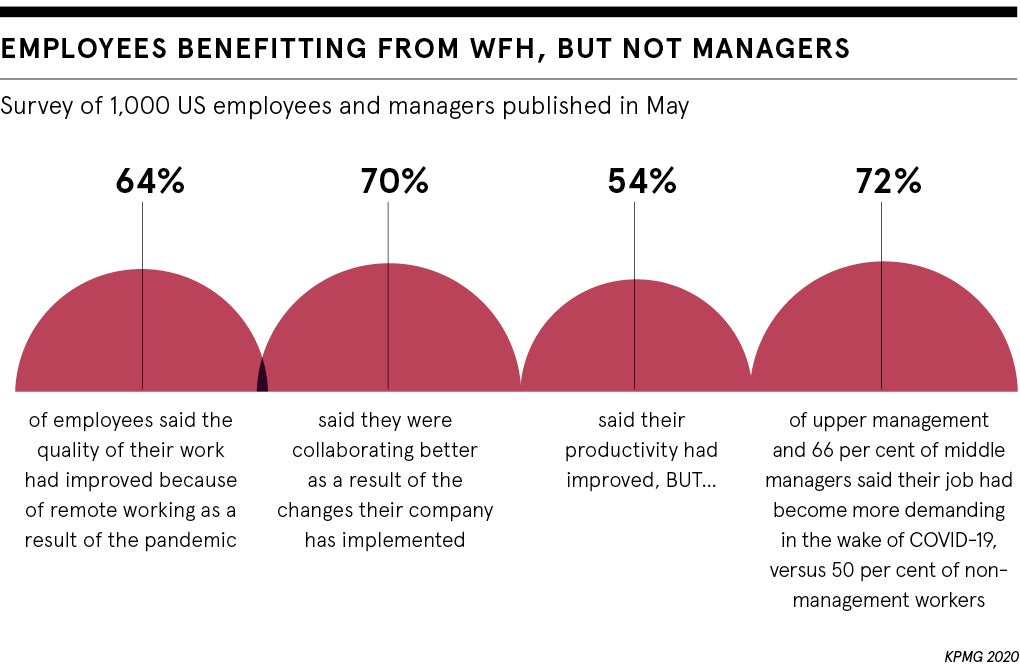
An Australian heading human resources for a Norwegian company in Amsterdam. An Italian leading growth of a San Francisco-headquartered firm from Italy. An Estonian startup founder leading the charge in bringing digital technologies to international immigration systems. And they’re all women.
These are examples of how access to a global talent pool is playing out in business. A burgeoning shift pre-coronavirus, it’s now steadily gaining momentum in our new pandemically punctuated, remote-working times.
“When it comes to recruiting talent, COVID-19 has given businesses a new lens through which to view modern working. Technology has accelerated the transformation of businesses globally, enabled teams to grow, diversify and socially connect, regardless of location,” says Xena Lappin, executive vice president of transformation and innovation at Teleperformance.
The remote-working specialist company has expanded rollout of its Cloud Campus remote client service hubs to accommodate an increasingly remote, globally agile workforce. The rise of remote working is opening up a wealth of global talent possibilities for both companies and individuals liberated by a borderless recruiting process.
Redefining what it takes to be a “tech nation”
Belief that economic hubs like London and Silicon Valley are no longer the source of the best talent is growing, as shared by 57 per cent of respondents in global human resources and payroll platform Remote’s latest Global Workforce Revolution study. Around 62 per cent felt entrepreneurs should look beyond these areas to find the best global talent and 42 per cent felt international remote working would unlock a greater talent pool.
Most importantly, 63 per cent agree that the best person for the job is the right person, regardless of where in the world they are.
“People want to be close to their families. They want to be close to their ageing parents. They want to be somewhere their kids can have a better childhood. All these metrics need to be taken into account when designing an attractive employee benefits package,” says Remote’s head of growth Elisa Rossi, who recently returned to her native Italy with her young family after 15 years in San Francisco.
With a mission to “drive the remote economy” against the complexities of global employment, tax and immigration rules, Rossi says Remote is seeing a spike in demand from companies of all sizes. Desired roles sourced from a global talent pool range from data scientists, to marketers, heads of HR, up to the C-suite, even chief executives. “Now, all of a sudden, there’s this democratisation of global employment,” she says.
How remote recruiting is breaking down barriers
Perhaps the biggest impact is on diversity and inclusion. Some 45 per cent of respondents in Remote’s report agreed a greater level of international remote working could make the tech industry more inclusive, with 30 per cent believing remote work could help build ethnic diversity and 25 per cent saying it would improve gender diversity.
The concept of borderless talent is even set to be “the greatest lever for diversity, equity and inclusion”, argues Jessica Hayes, vice president of people and talent at Whereby.
“In our leadership team, we have more women than men and we have a strong approach to working families. We have plenty of working mums and also shared parental capacity with fathers,” she says.
“We have a long way to go in terms of ethnic diversity, because we’ve pretty much exclusively recruited out of Norway for the last two years. But this year one of our goals is to spread the geographic locations of our teams.”
A remote-first company that offers a video-calling alternative to the likes of Zoom, Whereby is now doing just that, using Remote to recruit more readily from a global talent pool. Hayes has just hired a Toronto-based executive and, in another process, the final three candidates are based in the UK, Spain and the Netherlands in Amsterdam, where Hayes now lives.

Shifting the balance of work in the UK and beyond
Coming from a small town in rural Australia, Hayes believes the growth of the remote economy will in turn reinject local regional economies.
“We have a strong ethical underpinning in terms of opening up the economics of small communities, rather than global hubs,” says Hayes.
“We believe talent is equally distributed across the world, while the opportunity to do your best work is not. I am now perfectly capable of going back to my home town and working there if I want to and I likely will when I have children.”
A boost to regional hubs fuelled by borderless global talent is something Michael Cockburn, co-founder of workspace booking platform Desana, is backing. Demand for the Desana platform is playing into the work-from-home trend evolving into work near home, connecting employers and employers with bookable, flexible workspaces worldwide.
We believe talent is equally distributed across the world, while the opportunity to do your best work is not
Edinburgh-based Desana is rolling out pilot programmes with two household names. It is also working with a social media platform with a new mandate of hiring the best talent wherever it is.
“This has accelerated the business case for facilitating people working close to home and COVID has accelerated the number of companies we’re talking to about facilitating that. Without committing to an office, or one brand of office-space provider, companies can use this large network of space globally,” says Cockburn.
Desana partners with independent workspace providers that are considering acquiring new regional real estate to accommodate an expanding borderless, global talent pool.
“We’re seeing the decentralisation of every industry. So why shouldn’t we be focusing on how we create decentralised hubs that provide the resources we need to be happy and fulfilled in where we’re working, in a well-established workspace people can walk or cycle to from where they live?” he questions.
Sourcing Tier-1 talent from emerging markets
Such decentralisation is also opening doors for talent in emerging markets, with new platforms such as Andela and Remotely supplying remote software engineering teams out of Africa and Latin America. Remote has also partnered with Pesto, a talent accelerator for Indian software engineers, and Microverse, a coding program focused on Latin American and African students.
While this may do wonders for improving diversity, Whereby’s Hayes warns of the need for ethical pay scales. “Many businesses working in a distributed fashion are naturally reluctant to submit to compensating their team according to ‘big city’ salaries,” she says. “But, if you do not have a comprehensive and egalitarian compensation structure, businesses are more likely to fall into a trap of pay gaps or taking advantage of emerging markets.
“If you are a HR people leader in a distributed workplace, you must prioritise developing a compensation methodology which takes these facts into account. Prepare for them early; do not let yourselves fall into unsustainable or unethical pay practices.”
Whether this means driving down London salaries in favour of regional pay or some kind of equilibrium remains to be seen. But Karoli Hindriks, founder of global immigration platform Jobbatical, believes salaries may become less geographically driven and more about a price tag for a certain skillset and level of expertise.
Bringing digital technologies to the immigration process
Either way, Tallin-based Hindriks, who helped pioneer the development of the world’s first digital nomad visa, allowing remote workers to be legally based in Estonia, says a widespread adoption of borderless talent is dependent on international immigration systems becoming more open and efficient.
“We can build as much tech as possible, but if policies don’t change, we can’t really help companies,” she says.
Hindriks has been called on to advise the Croatian government, which is looking to plug its COVID tourism gap with remote workers and has worked with immigration authorities in Berlin on submitting applications digitally via Jobbatical, cutting processing time from ninety days to five.
“We are having similar discussions with other governments, but things aren’t going to change overnight. We need countries like Germany, Spain, Italy, United States and the UK to follow suit,” she says. “The biggest problem is the whole immigration industry is outdated. Maybe this pandemic will make the public sector think about efficiency more.”
While Whereby’s Hayes agrees immigration and employment law need to catch up, Remote’s Rossi says borderless talent and the remote economy is a macro trend and there’s no going back.
As Desana’s Cockburn concludes: “Now people’s expectation is to be able to work where they want and companies just have to facilitate that.”

An Australian heading human resources for a Norwegian company in Amsterdam. An Italian leading growth of a San Francisco-headquartered firm from Italy. An Estonian startup founder leading the charge in bringing digital technologies to international immigration systems. And they’re all women.
These are examples of how access to a global talent pool is playing out in business. A burgeoning shift pre-coronavirus, it’s now steadily gaining momentum in our new pandemically punctuated, remote-working times.
“When it comes to recruiting talent, COVID-19 has given businesses a new lens through which to view modern working. Technology has accelerated the transformation of businesses globally, enabled teams to grow, diversify and socially connect, regardless of location,” says Xena Lappin, executive vice president of transformation and innovation at Teleperformance.
